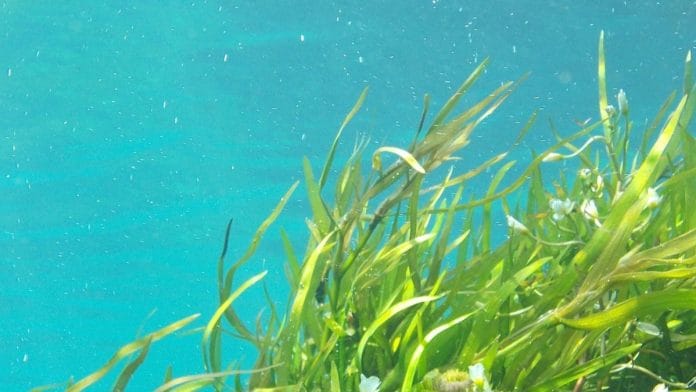A few years ago, watching a climate change documentary gave Howard Gunstock and his business partner Dave Walker-Nix a lightbulb moment.
There was a graphic showing a “mythical machine”, yet to be invented, which could suck carbon dioxide out of the air.
“The joke was, ‘If only there was something that could do this naturally’, and of course there is – it’s trees,” recalls Gunstock. “Then Dave said, ‘Seaweed grows 30 times faster than trees’.”
That moment sowed the seeds of Carbon Kapture, a sustainability start-up calling for companies and individuals to sponsor ropes growing seaweed on its first seaweed farm, a partnership with shellfish farmers to grow kelp in Ireland’s Mulroy Bay.
The seaweed is harvested and turned into biochar, through a heating process called pyrolysis, which is rich in carbon and nutrients, that the company will then donate to local farmers, to enrich soil and reduce the need for fertilizer.
“We want to create a circular ecology business model, effectively using nature to help nature to bring back some balance to the imbalance of man-made climate change,” Gunstock tells the World Economic Forum.
Putting the ocean first
World Oceans Day is on 8 June. This year’s theme is Planet Ocean: Tides are Changing and the UN will bring together decision-makers, scientists and civil society in a special event to “put the ocean first”.
As Gunstock says: “We’re a blue planet not a green planet – two out of every three breaths we take comes from oxygen created by life in our oceans, but they’re in such poor health.”
The ocean is home to around 226,000 species that we know of so far – but so much of it remains undiscovered and the real total could be closer to 700,000, according to UNESCO
It also supports the livelihood of more than 3 billion people, but much of our focus on efforts to tackle the impacts of climate change has been on land and the ocean is suffering.
In April 2023, sea surface temperatures reached record levels. In March, the Intergovernmental Panel on Climate Change (IPCC) warned ocean warming has already adversely affected food production from fisheries and shellfish aquaculture in some areas.
Nature-based solutions at sea
Nature-based solutions benefit biodiversity and human life, helping restore ecosystems and mitigate climate change.
Carbon Kapture’s seaweed farm has the potential to scale to 250 hectares and grow around 11,000 tonnes of seaweed per year. This will boost biodiversity and water quality in Mulroy Bay, as well as sequester carbon in biochar, which helps to improve soil quality.
“The oceans heal faster than anything else on the planet, so you can actually repopulate fish and marine stocks in certain areas within four or five years,” says Gunstock.
“The phrase is, ‘Where seaweed grows, marine life flourishes’, so with seaweed there’s a real opportunity to do something significant to bring back some balance and restore life to our oceans to a state where it’s sustainable again.”
The company has already had a positive response, with academics and farmers reaching out from as far away as Australia – and the potential to grow is exciting, says Paul Rees, Carbon Kapture’s Chief Revenue Officer.
“We can scale globally by opening new farms with multinational organizations looking to restore balance to the communities they impact the most. Given the right interest levels, we aim to establish a global network of 200 farms over the next 10 years, which could capture over 364,000t of CO2 per year.”
Seaweed – a growing solution
Carbon Kapture joins a growing global roster of seaweed start-ups, many of which are part of the World Economic Forum’s UpLink community, a platform connecting social innovators with experts and investors to accelerate impact.
Here are just a few:
- Atlantic Sea Farms
This US-based company created the country’s first commercial seaweed farm, growing edible seaweed, and now works with 24 partner farmers – farming over 40 miles of kelp on the coast of Maine.
- Urchinomics
Urchinomics helps restore kelp forests through responsible “urchin ranching”. This involves removing overgrazing sea urchins and selling them to restaurants globally as premium urchin roe (“uni”).
- Oceanium
Oceanium is helping to tackle plastic pollution by creating biodegradable packaging from seaweed, as well as ingredients for the food and nutrition industry.
- Sea6 Energy
This India-based start-up produces a range of products from tropical seaweed, including biofuels, which could reduce our reliance on fossil fuels. It uses an ocean tractor called a SeaCombine to harvest floating seaweed crops on a mass scale.






